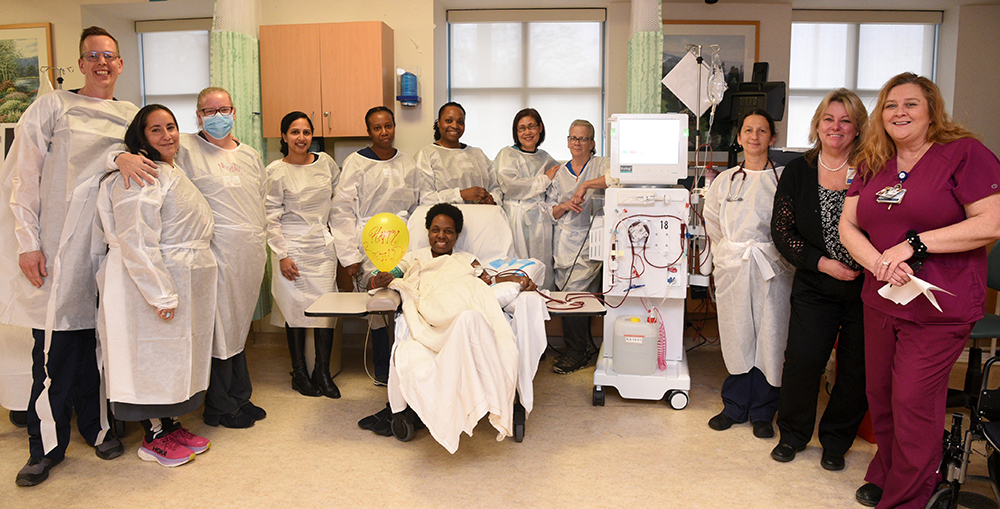Friday, January 12, 2024
What to Expect When Starting Your Dialysis Journey at the HealthAlliance Dialysis Center
Starting dialysis can be a significant transition in someone's life, impacting both their physical routine and emotional well-being. “This can be a very difficult process for our patients,” says Susmitha Dhanyamraju, MD, medical director of WMCHealth’s HealthAlliance Dialysis Center in Kingston, NY. “Luckily, our outpatient dialysis center boasts state-of-the-art technology and a compassionate care team dedicated to elevating the standards of care for our patients.”
Understanding hemodialysis treatment
Dialysis is a medical procedure used to perform some functions of the kidneys when they are no longer able to do so effectively. The kidneys filter waste products, excess fluids and toxins from the blood. But when kidneys are impaired due to conditions like kidney disease or failure, dialysis helps in performing this vital function.
If you need dialysis treatment, you’ll most likely receive hemodialysis in an outpatient treatment center. Hemodialysis involves using a dialysis machine and an artificial kidney (dialyzer) to filter toxins, waste and extra fluids from your blood, and then return it to your body.

Susmitha Dhanyamraju, MD, and the dedicated staff at the HealthAlliance Dialysis Center celebrate a patient's birthday.
What to expect when starting dialysis
Starting dialysis can bring significant changes to a patient's life, impacting various aspects such as daily routine, diet and overall lifestyle. Here are some changes you can expect when starting dialysis treatment:
 |
| Susmitha Dhanyamraju, MD |
- Treatment schedule: Dialysis requires a regular treatment schedule, usually multiple sessions per week, which may disrupt your work, social activities and daily plans.
- Dietary changes: You may need to follow new dietary guidelines to help control waste buildup and manage fluid balance between dialysis sessions. This often involves limiting fluids and monitoring your protein intake and certain nutrients like potassium, phosphorus and sodium.
- Medication management: You may need to take medications to control blood pressure, manage mineral balance, stimulate red blood cell production and prevent complications associated with kidney disease and dialysis.
- Lifestyle adjustments: Fatigue and weakness after dialysis sessions are common, which might impact energy levels and daily activities.
Your experience at the HealthAlliance Dialysis Center
At the HealthAlliance Dialysis Center, you can expect a supportive care team and tailored treatments to help you live your healthiest, most fulfilling life. “The HealthAlliance Dialysis Center is committed to innovation and quality treatments,” explains Dr. Dhanyamraju. “We have 34 new dialysis machines that can monitor in real-time how effectively blood is being filtered. These innovative technologies allow us to continue to provide high-quality care to our patients.”
To learn more about the HealthAlliance Dialysis Center, visit our website. Westchester Medical Center and Good Samaritan Hospital offer comprehensive, inpatient hemodialysis and peritoneal dialysis services.